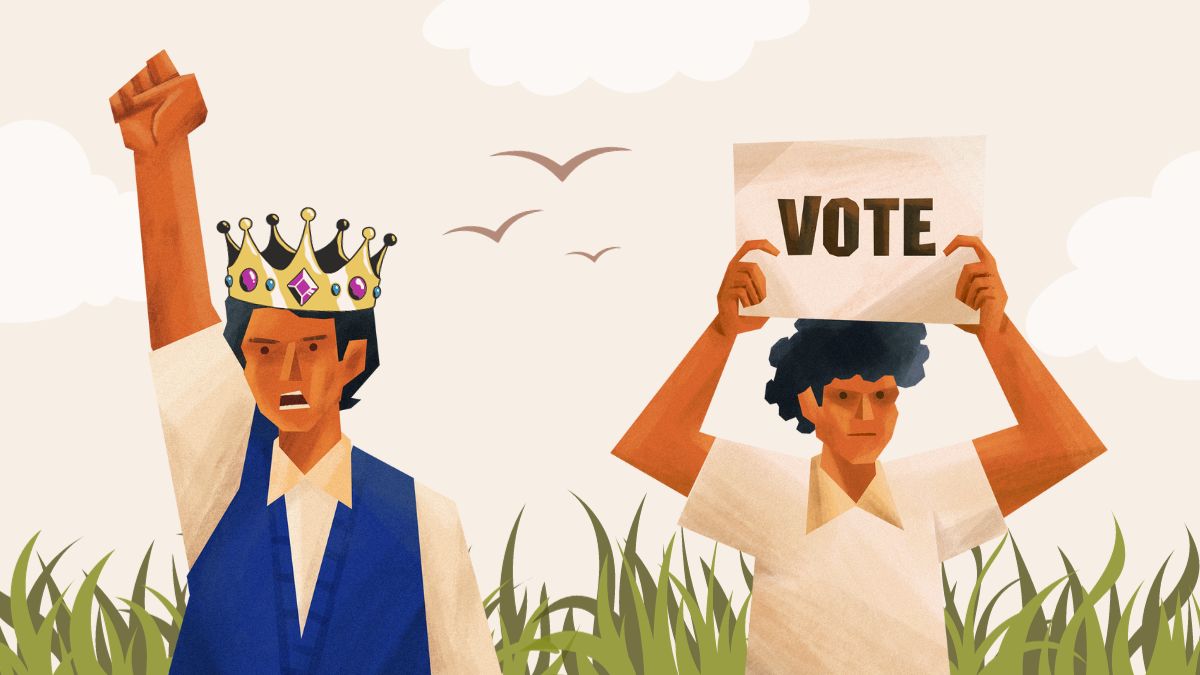Is monarchy a superior form of government when compared to democracy?
With the help of this article, we will explore the benefits of a monarchy and delve into the reasons why it can be considered better than a democracy. Contrary to popular belief, monarchy offers certain advantages that can contribute to a stable and efficient governance system.

The stability of monarchy.
One of the primary reasons why monarchy is often deemed superior to democracy is its inherent stability. In a monarchy, power is centralized in the hands of one individual, who holds the position for life or until abdication. This eliminates the frequent changes in leadership that can occur in a democratic system. With a stable and consistent ruler, a monarchy can provide long-term vision and continuity to the nation. Corruption exists more in democracy and same is bad for economic growth.
Efficiency in decision-making.
Monarchies are known for their ability to make swift decisions and implement policies without being hampered by bureaucratic red tape or partisan disagreements.
In a democracy, decision-making processes can be slow and convoluted due to the need for consensus-building and multiple layers of governance. Monarchs, on the other hand, are able to swiftly enact reforms and respond to emerging challenges, leading to more efficient governance.
Expertise and experience.
Monarchs often inherit their position and receive extensive training and education to govern effectively. They are raised from birth with the knowledge and understanding of the responsibilities that come with ruling a nation. This upbringing enables them to develop expertise in leadership and diplomacy, making them well-equipped to make informed decisions for the benefit of their country. In contrast, elected leaders in a democracy may lack the same level of experience or expertise.
Protection of national identity.
Monarchies have the potential to preserve and protect national identity and cultural heritage. The royal family often serves as a unifying symbol for the nation, representing its history, traditions, and values. This can foster a sense of national pride and unity, which is vital for social cohesion and stability.
In democracies, where leadership may change frequently, there is a greater risk of diluting or eroding the national identity.
Economic and financial stability.
Monarchies have consistently demonstrated a track record of stability in managing the economy and finances. The long-term perspective of monarchs allows for strategic planning and economic policies that can withstand short-term fluctuations.
Additionally, monarchies often possess significant personal wealth, which can be mobilized to support economic initiatives or philanthropic endeavors. This financial stability and commitment to the welfare of the nation contribute to overall economic prosperity.
Critics’ arguments and counterpoints.
While monarchy may have its merits, critics argue that it concentrates too much power in the hands of one individual and limits the ability of citizens to actively participate in governance.
However, it is important to note that some monarchies have embraced constitutional frameworks that balance power between the monarchy and elected representatives, allowing for citizen participation while maintaining the stability and efficiency associated with a monarchial system.
In conclusion.
Although democracy is widely considered the ideal form of government in modern society, it is important to recognize the advantages that monarchy can bring.
The stability, efficiency, expertise, protection of national identity, and economic prosperity associated with a monarchy make it a viable alternative to democracy.
By embracing the strengths of both systems, it is possible to create a governance model that combines stability and efficiency with citizen participation and representation.
Leave a Reply